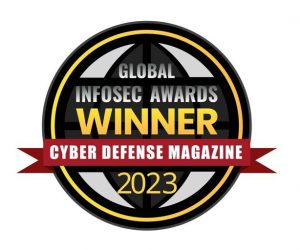If you’re responsible for physical security, then you might be familiar with the concept of “mean time to innocence”. It’s an IT term that highlights how the network is often blamed for problems, and how the IT team needs to quickly get to the real root cause in order to show that the network is “innocent”. Same thing happens in physical security; for example, if video is not recording properly it often is blamed on the camera device when the root cause may be an issue with storage.
All physical security systems at some point fail to accomplish their mission; the video is not recorded properly, or access is not granted when it should be. IP-based security systems are increasing complex, with every video stream or access control signal potentially taking a different path through the infrastructure. So not only is this increased complexity a reason that failures have increased, it’s also the reason it takes a lot longer to find out the root cause.
Having no explanation or sense of when an explanation will be available when a physical security system fails is tremendously damaging to the security team’s reputation. Not knowing why a failure happened, especially if there are many such incidents, leads to the security team be found guilty by their colleagues, peers, and sometimes auditors. While that “guilt” may not be criminal, it certainly erodes the authority of the security team and leaves open to question how vulnerable the organization is.
Another factor is the cost and time of getting to the root cause. If it takes a long time then likely the cost of employees manually trying to find the root cause will be deeply expensive. Not only that, but in the time spent figuring out what went wrong, the security system is still isn’t working as it should – meaning the money spent to deliver maximum security is now delivering zero security. If your security system is down 30% of the time (not an uncommon number), then the real cost of the security you’re getting is 30% more than you paid.
That’s why making the “mean time to innocence” as short as possible is critical. The cost of time, money, and reputation damage of not getting to the root cause can make a bad situation worse. In particular, getting to innocence quickly is critical when there is a failed audit, a security breach, or time-critical investigation. Viakoo’s automated service assurance solutions can bring your mean time to innocence to virtually zero by its ability to detect failures or service issues and immediately determine root cause and corrective actions needed. In addition, Viakoo’s reporting capabilities make it easy to share and communicate this information, bringing closure on issues quickly to all that are involved. Interested in seeing how automated service assurance can reduce your mean time to innocence? Sign up for a demo account at www.viakoo.com/start.
PS: I was thinking to forward the term “mean time to innocence” to Ray Bernard, who has a regular column in Security InfoWatch called “Real Words or Buzzwords” where IT terminology like this is made clear in the context of physical security. If you’re not familiar with his column it’s worth checking out: https://www.securityinfowatch.com/home/contact/10239769/ray-bernard-psp-chsiii







